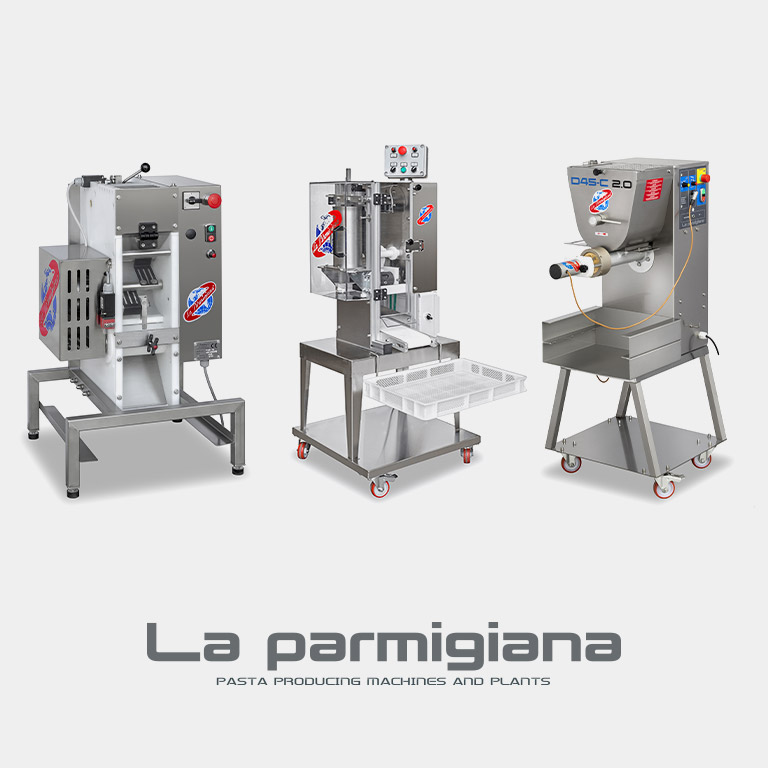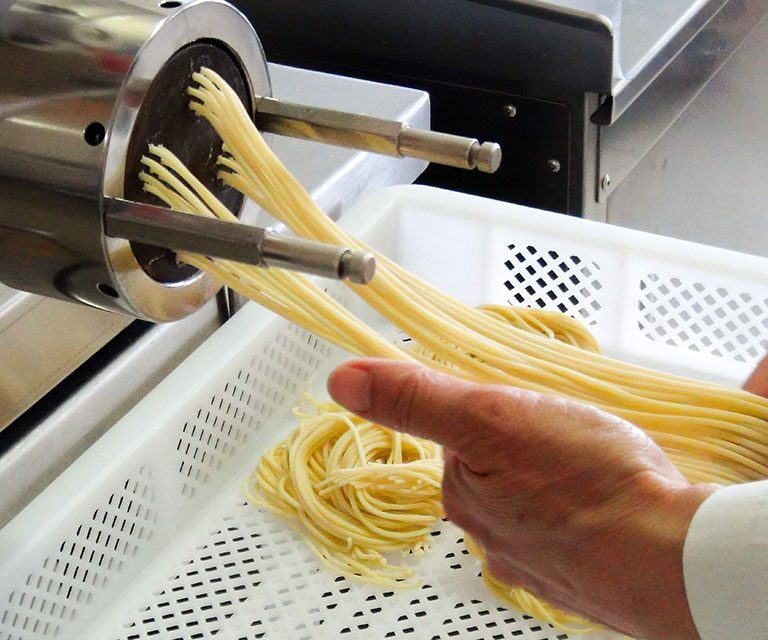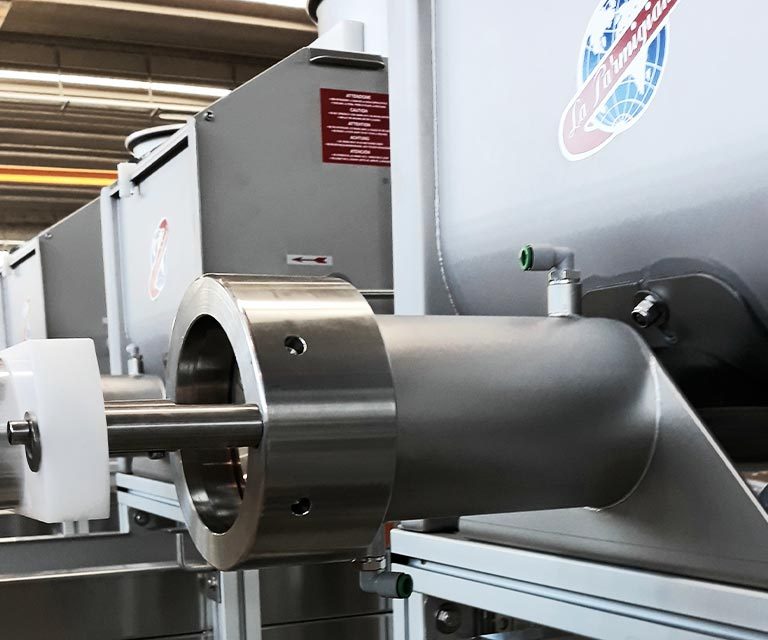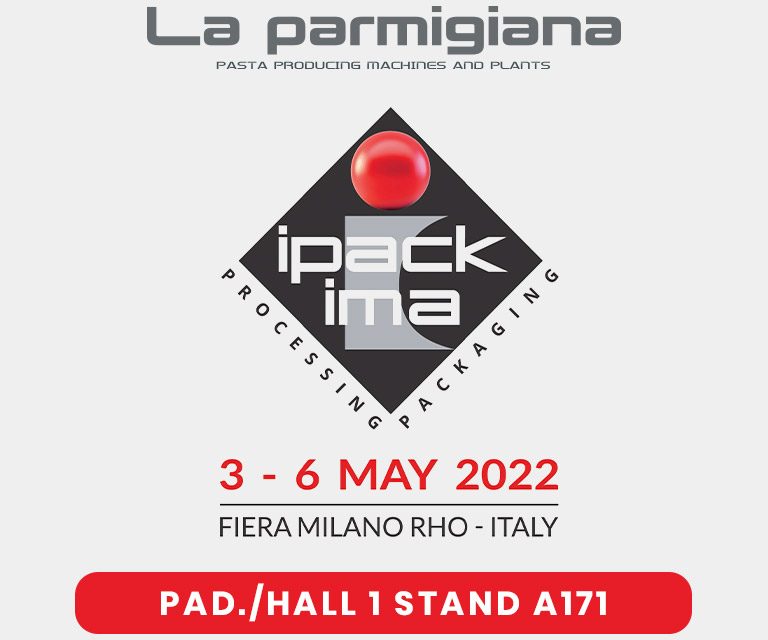Considering that the parameters for judging the quality of a pasta machine must not – or at least should not – be based on aesthetic or dimensional factors (although we recognise the frequent lack of space available) and being in the need/willing to produce several shapes (simple extruded pasta, filled pasta, gnocchi…), the professional pasta machine market offers two types: monofunctional and multifunctional or combined.
Multifunctional version
These are machines that somewhat resemble the all-purpose “robots” that are so popular because they are like household appliances, and which, above all, emphasise compactness and multi-functionality. These machines, by their very purpose, are designed to reduce the overall dimensions, consequently the fundamental components such as the motor and mechanical parts are affected, having to coordinate several functions in a single machine.
Such hybrid machines are certainly attractive, sometimes economically, provided you accept a compromise on production capacity/quality and do not need to replace them in the short term due to changing requirements.
Monofunctional version
each machine is designed for a single purpose (e.g., extruding long pasta, short pasta;). This machine is complemented by other machines that extend the range (ravioli machines, dumpling machines, sheeters, etc.).
La Parmigiana builds with the quality of the finished product in view;therefore, each machine is designed with a single purpose in mind: extrusion, or forming, or rolling, without neglecting simplicity of use, absence of maintenance, long life, great reliability, simplicity of intervention and, above all, the possibility of replacing a machine with a specific function, without having to change them all.
The reasons that have confirmed the choice of La Parmigiana as a winner are linked to the construction technology and the experience gained in over 70 years of activity, both in the catering sector and in the laboratory and industrial sector:
- In extrusion, there are parameters that must be respected to obtain a quality product, such as: channel and screw geometry, extrusion speed, materials used and motor power;
- Professional dough sheeters are normally subjected to intense use throughout the day (e.g., delicatessens and small pasta factories, restaurants, etc.) and must guarantee continuity and uniformity of production. It is therefore necessary to have reliability that lasts over time, with motors and rollers sized specifically for these workloads, independent of other functions that are not its own;
- The ravioli machine, a totally independent machine, adapts to the extrusion press, but in the event of increased production, both the ravioli machine and the press can be replaced alternately, without necessarily changing both. This allows the customer to reduce replacement costs, as well as always having the most suitable machines for each production run, while maintaining the highest quality pasta in each shape.







